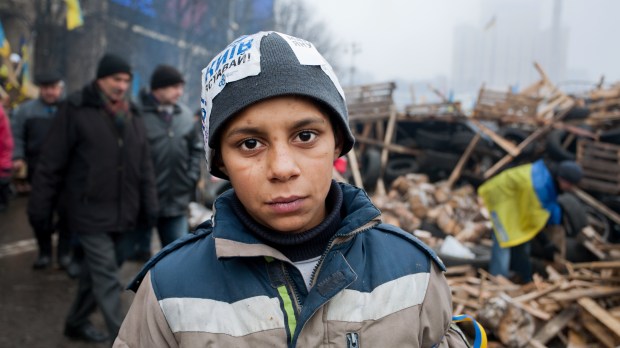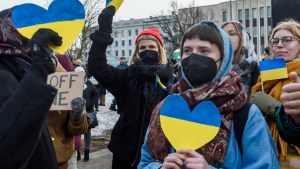Parenting is challenging under the best of circumstances, but when you add in trying to help your children understand and cope with stressful events like pandemics, natural disasters, terrorism, school shootings, and war, the task can feel overwhelming.
The past few years have been very stressful for families — especially children. A recent study examined the impact of school closures and pandemic restrictions on kids in 11 countries and found that children and teens experienced an increase in anxiety, depression, and a host of other mental health issues. Another study found that suicide attempts among adolescent girls increased during the pandemic.
So on the heels of what has already been a tough time for many kids, our news media is now full of images, videos, and stories of the war in Ukraine. How should we talk to our children about this? Here are a number of things to consider when explaining it to kids of any age.
Always be reassuring
The most important thing to do when any scary situation is happening is to reassure your children that they are safe right now, that God is loving and trustworthy, and that many people are working to resolve the situation.
Double down on routines
Daily routines help children feel grounded and allow them a sense of control when the world around them feels completely out of control. So stick to regular mealtimes, bedtimes, basic rituals, etc.
Keep it age appropriate, and tailor info to your child
Always take your child’s lead — some kids are more curious and ask a lot of questions; others are satisfied with simple answers. Some kids are sensitive and may be prone to anxiety; others can more easily let scary things roll off their backs. Young children don’t need many details – just an acknowledgment of what’s happening if they ask. Teens may want to keep up with the news and learn more of the details. Be honest, but keep it simple.
Discuss facts and avoid frightening information
No matter the age of your child, stick to facts and avoid frightening information. That might mean turning off the news or being selective about what and when you watch. Keep in mind that reading information is less anxiety-provoking than seeing images and video.
Look for the helpers
Mister Rogers once said, “When I was a boy and I would see scary things in the news, my mother would say to me, ‘Look for the helpers. You will always find people who are helping.'” This is wise advice. We can point out specific people and groups who are helping the people affected by the war, and who are working to resolve the situation.
Pray and fast as a family
Situations like war can leave us feeling helpless. What can we do? One of the most effective actions we can take is to pray and fast. It changes outcomes, and it changes us. It can be powerful for children to realize that they can join their prayers and sacrifices to those of millions around the world. Pope Francis has called Catholics to fast this Ash Wednesday for peace in Ukraine so do this together as a family. And why not encourage your children to offer their Lenten penances or practices for peace in Ukraine and around the world?
Make a plan to give to those who are helping
The other thing you can do is talk to your children about giving something to those who are trying to help the people in Ukraine. If your children have piggy banks, or get allowances, another way for them to be part of the solution is to give to those who are helping, and who will be helping in the future, such as aid organizations like Catholic Relief Services.
All of these suggestions can help guide your conversations, whether it’s the war in Ukraine or another big world event. There are numerous places in the world today where people are experiencing war, violence, persecution, and discrimination — and they are all important. As we seek to protect our children and nourish their mental health, let us also teach them by example and through acts of faith and trust that we are all brothers and sisters.



